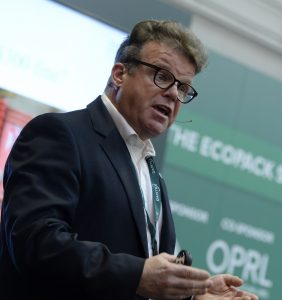Author: Renan Joel, Event Director of Packaging Innovations NEC 2020
Sustainability is one of the hottest topics within the packaging industry right now. For several years there has been a heavy focus on plastic as both the industry and consumers asked themselves how the reliance on single-use plastic products could be reduced and if there are sustainable alternatives out there that we should be using. However, the issue of sustainability cannot simply be solved by eliminating plastic in favour of alternative materials. It is much more complex than that.
Plastic is so often incorporated in packaging because it performs a vital role – to protect the product. For industries where there are strict regulations in place, such as throughout the food and pharmaceutical sectors, plastic often remains the option that is the best fit for purpose.
Where plastic can be substituted though, it is essential that we consider the entire lifecycle of packaging, and how materials perform at each stage, in order to find truly sustainable solutions. From raw material to disposal, every step of the supply chain has its own impact on the environment.
It’s undeniable that we have a single-use plastic problem. Indeed, in the UK alone it is estimated that five million tonnes of plastic is used every year, nearly half of which is packaging and only a quarter of which is recycled. However, simply replacing plastic with a ‘greener’ material doesn’t necessarily solve the problem. The resources needed to manufacture, transport, and dispose of alternatives can, in some instances, result in more damage to the environment than the plastic we are trying to replace.
We only need to look at the topics that have been hitting the headlines in recent months to get a sense of the complexity of the problem. For instance, the water and time needed to grow wood for paper used in packaging and the carbon impact of sourcing and shipping materials from overseas have all been put under the spotlight in recent weeks as consumers increasingly consider sustainability at every point in a product’s lifecycle. With this in mind, it’s also important that we weigh up the credentials of recyclable solutions against packaging that can be used hundreds of times, reducing the need to create new packaging from raw materials.
This shift in focus will take centre stage at Packaging Innovations 2020, where leading industry experts will discuss the complex issue of creating packaging that is sustainable at every point in its lifecycle during our new seminar platform, the BIG Carbon Debate. The demand for packaging isn’t decreasing, after all, many of the products we buy will always need to be packaged in some way. However, we do have control over how we create and dispose of it and we strongly believe that the key to finding the sustainable answer is collaboration.
For further info rmation, please visit the Packaging Innovations NEC 2020 website or contact the show team on +44 (0)20 8843 8800 or [email protected].
rmation, please visit the Packaging Innovations NEC 2020 website or contact the show team on +44 (0)20 8843 8800 or [email protected].
